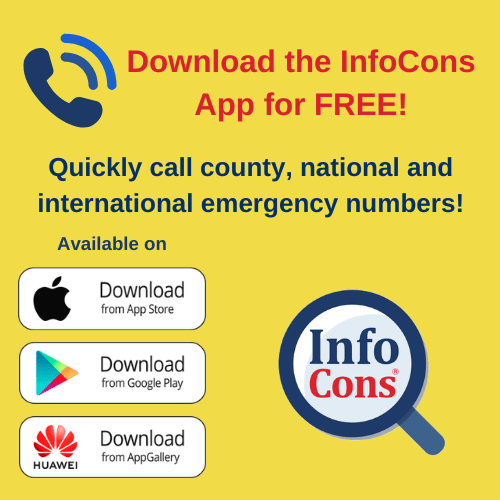Mission
Protecting Human Rights: Ensuring Consumer Protection and Access to Emergency Services
Human rights are the fundamental principles that underpin a just and equitable society. They encompass a wide range of rights and freedoms, including the right to life, liberty, and security of person, as well as economic and social rights like the right to consumers protection and access to essential services. We know the importance of safeguarding human rights, particularly in the context of consumer protection and therefore we want to facilitate access to emergency services, ensuring individuals are informed and respected.
Consumer Protection: A Vital Human Right
Consumer protection is an integral component of human rights, as it safeguards individuals from exploitation, ensures fair treatment, and promotes economic well-being. People have the right to safe and quality products, truthful advertising, and protection against fraud and unfair business practices. When consumers are informed about their rights, they can make informed choices and assert their rights effectively.
Governments and regulatory bodies play a crucial role in upholding consumer protection rights. They establish laws and regulations that businesses must adhere to, ensuring products and services meet safety standards and that consumers have access to remedies when issues arise. Consumer advocacy groups and organizations also work tirelessly to educate individuals about their rights and provide assistance in case of disputes.
Quick and Free Access to Emergency Numbers: Preserving Lives
The right to quick and free access to emergency numbers is a critical human right that can mean the difference between life and death in emergency situations. This right ensures that individuals can promptly reach out for help in times of crisis, such as medical emergencies, accidents, or threats to personal safety. Governments and telecommunications providers have a responsibility to make these emergency services accessible to all, regardless of economic or social status.
Quick access can save valuable time, preventing further harm or even saving lives. In many countries, services like 911 (in the United States), 112 (in Europe), or 999 (in the United Kingdom) serve as centralized emergency response numbers that anyone can dial in case of need.
Information and Respect: The Cornerstones of Human Rights
Informed and respected individuals are empowered individuals. Human rights encompass the right to information and respect in various contexts, including healthcare, education, and law enforcement. People have the right to access accurate information about their health, education, and legal matters, enabling them to make decisions that affect their lives.
Furthermore, respect for one’s dignity and rights is a fundamental aspect of human rights. This includes being treated fairly and without discrimination in all aspects of life, from employment to legal proceedings. Law enforcement agencies, for example, must respect the rights of individuals during arrests and investigations, ensuring due process and protection from abuse.
Human rights, including consumer protection, access to emergency services, and the right to information and respect, are essential pillars of a just and equitable society. These rights ensure that individuals are treated fairly, have access to essential services, and can make informed decisions about their lives.
We need a world where every person is informed, respected, and able to live with dignity.
In doing so, we create a better future for all.

